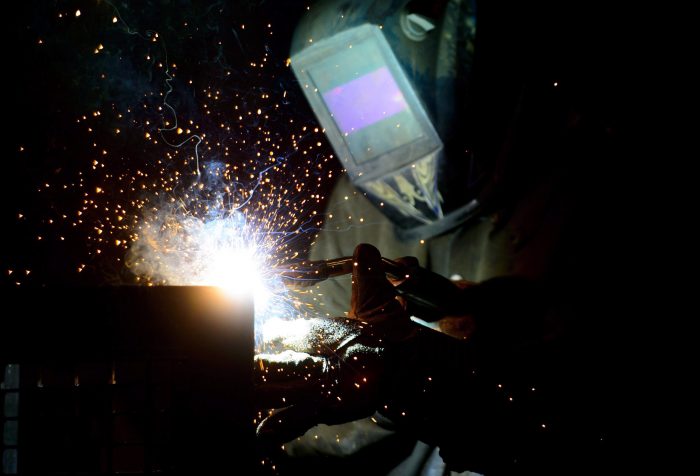The White House announcement of U.S. tariffs on Canadian steel and aluminum could, or at least, should not have taken anyone in this nation by surprise.

The Trump administration was quite clear in March that while Canada, Mexico, Australia, Argentina, Brazil and the European Union would benefit from temporary tariff reprieves of 25 per cent on steel and 10 per cent on aluminum, a final determination on any permanent exemption would not be long in coming.

WATCH ABOVE: Why is President Trump instigating a global trade war?
At the time, I said the Canadian government should spare no effort to gain entry to the exemption list. After all, the Prime Minister had just returned from his disastrous trip to India, where his daily choice of colourful traditional native garb was gleefully mocked by his opponents.
Indian journalist Shivam Vij, who found Justin Trudeau’s clothing foray amusing, also shared on air that the Indian government was not in favour of the Trudeau visit and understood it to be an effort to appeal to the large ethno-Indian community in Canada, rather than a mission to improve relations with New Delhi.
The Prime Minister returned from India with what could, at best, be described as minimal trade success.

Get breaking National news
Now, surely, Justin Trudeau would throw himself into the Canadian steel and aluminum tariffs matter, while simultaneously exercising federal power by driving the Trans Mountain pipeline extension to the finish line.
The PM accomplished neither. A one-day pipeline meeting with the premiers of British Columbia and Alberta was even short on meaningful soundbytes. Canadian steel and aluminum tariffs? Nada.
Then, last week, the announcement of federal monies to the tune of perhaps $4.5 billion would be pouring down Trans Mountain extension, verified a prediction I made on air weeks ago.
Clearly, Canada was prepared for a tariffs declaration because within hours of the Trump administration’s announcement, the pushback was revealed.
Some $16 billion of U.S. goods entering Canada will be subject to import tariffs.
Keeping that in mind, consider that just over 70 per cent of our exports nationally are reliant on the U.S. and we’re still not free of inter-provincial economic threats over economy-supporting pipelines.
So while we’re wrestling each other, we’re now going to load the slingshot for the Americans? That’s nonsense. Aggressive Canadian chatter six months prior to U.S. midterm elections is a non-starter.
There was even a template of sorts available to Justin Trudeau and his Liberal government. While the South Korean trade pact with the United States was harshly criticized by President Trump, Seoul nevertheless became the first American ally to benefit from an indefinite steel tariffs exemption.
Under new terms of U.S. and South Korean trade, American automakers will gain increased access to the Korean market and that country’s steelmakers will reduce exports to the United States by 30 per cent of the 2015-2017 average, leaving about 2.68 million tonnes of South Korean steel tariff-exempt.
Statistics from 2016 reveal Canada and the U.S. to be each other’s number one destinations for steel exports.
What lies ahead? An all-out trade war?
We should all hope not. Such acrimony lengthened by several years and deepened significantly the Great Depression of the early 1930s.
Roy Green is the host of the Roy Green Show on the Global News Radio network.








Comments
Want to discuss? Please read our Commenting Policy first.